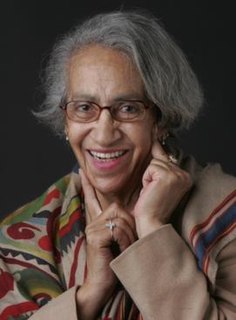A Quote by George Sand
I loved [fairy stories] so, and my mother weighed down by grief had given up telling me them. At Nohant I found Mmes. d'Ardony's and Perrault's tales in old editions which became my chief joy for five or six years ... I've never read them since, but I could tell each tale straight through, and I don't think anything in all one's intellecutal life can be compared to these delights of imagination.
Related Quotes
Jesus never tried to hide his loneliness and dependence on other people. He chose his disciples not as servants but as friends. He shared moments of joy and grief with them, and asked for them in times of need. They became his family, his substitute mother and brothers and sisters. They gave up everything for him, as he had given up everything for them. He loved them, plain and simple.
Independently of the curious circumstance that such tales should be found existing in very different countries and languages, which augurs a greater poverty of human invention than we would have expected, there is also a sort of wild fairy interest in them, which makes me think them fully better adapted to awaken the imagination and soften the heart of childhood than the good-boy stories which have been in later years composed for them.
The fairy tale that really scared me was Bluebeard. That's the one where he just kills one after another of these woman, these wives, that he lures up to the castle. I just think about fairy tales as stories women told their children to warn them? To keep them safe, to make sure they married up, all the things that would have safeguarded them in the olden days.
Fairy tales have always been about getting through the worst of everything, the darkest and the deepest and the bloodiest of events. They are about surviving, and what you look like when you emerge from the trial. The reason we keep telling fairy tales over and over, that we need to keep telling them, is that the trials change. So the stories change too, and the heroines and villains and magical objects, to keep them true. Fairy tales are the closets where the world keeps its skeletons.
The children know all about everything so well that it never occurs to them to play at the situations in any one of these tales, or even to read it twice over. But let them have tales of the imagination, scenes laid in other lands and other times, heroic adventures, hairbreadth escapes, delicious fairy tales in which they are never roughly pulled up by the impossible —even where all is impossible, and they know it, and yet believe.
Fairy tales are loved by the child not because the imagery he finds in them conforms to what goes on within him, but because--despite all the angry, anxious thoughts in his mind to which the fairy tale gives body and specific content--these stories always result in a happy outcome, which the child cannot imagine on his own.
[Fairy tales] are like a journey to the woods and the many ways you can get lost. Some people say it's not a good idea to read fairy tales to anyone under the age of eight because they are brutal and raw. When I was a kid I often felt that kids's books were speaking down to me, but I never felt that way about fairy tales. They are bloody and scary, but so is life.
Why are so many of us enspelled by myths and folk stories in this modern age? Why do we continue to tell the same old tales, over and over again? I think it's because these stories are not just fantasy. They're about real life. We've all encountered wicked wolves, found fairy godmothers, and faced trial by fire. We've all set off into unknown woods at one point in life or another. We've all had to learn to tell friend from foe and to be kind to crones by the side of the road. . . .
Comedy and tragedy are so mixed up in life, Gilbert. The only thing that haunts me is that tale of the two who lived together fifty years and hated each other all that time. I can't believe they really did. Somebody has said that 'hate is only love that has missed its way.' I feel sure that under the hatred they really loved each other . . . just as I really loved you all those years I thought I hated you . . . and I think death would show it to them. I'm glad I found out in life.
A parent who from his own childhood experience is convinced of the value of fairy tales will have no difficulty in answering his child's questions; but an adult who thinks these tales are only a bunch of lies had better not try telling them; he won't be able to related them in a way which would enrich the child's life.






































